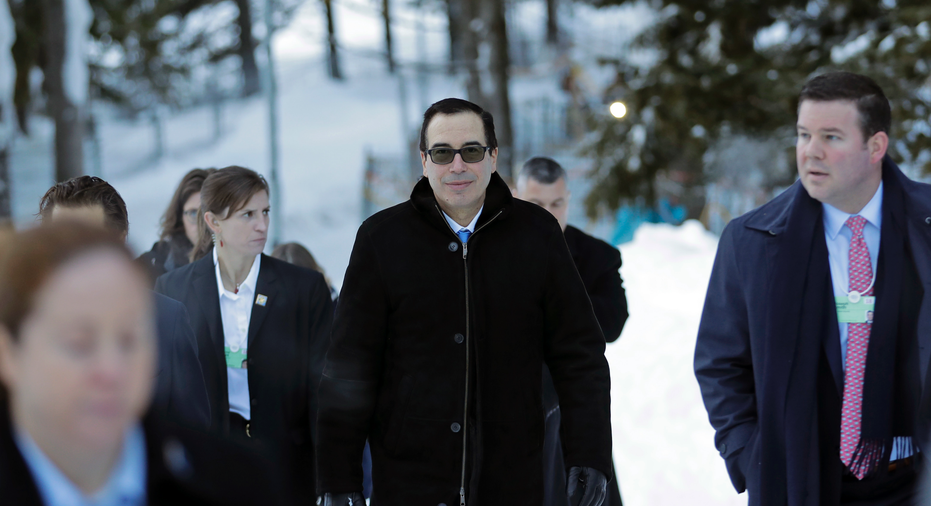Dollar tumbles after US treasury chief welcomes weaker value

DAVOS, Switzerland – The U.S. treasury chief welcomed a weaker dollar on Wednesday, breaking with a decades-long commitment by the U.S. government to back a strong dollar.
The comments led to an immediate, sharp drop in the value of the dollar in currency markets.
"Obviously a weaker dollar is good for us as it relates to trade and opportunities," Steven Mnuchin said during his visit to the World Economic Forum in Davos, Switzerland. Mnuchin was in Davos to seek investment from businesses and to talk to trade partners ahead of a highly-awaited speech by President Donald Trump on Friday.
Investors were struck by Mnuchin's comments because for most of the past two decades, U.S. Treasury chiefs regularly stated that a "strong dollar is in the best interests of the United States."
Then-Treasury Secretary Robert Rubin began using that phrase when he became Bill Clinton's Treasury secretary in 1995 and it has since been repeated by every Treasury secretary — whether under Democratic or Republican administrations.
Mnuchin's words could be a signal that the Trump administration is prepared to try to talk down the dollar's value to boost exports. A weaker dollar makes U.S. products more competitive in international markets.
The dollar dropped by a cent against the euro, hitting a three-year low of $1.2406. It fell 1.1 percent against the yen, to 109.13 yen.
In Washington, presidential press secretary Sarah Huckabee Sanders did not specifically answer whether the Trump administration prefers a strong dollar or a weak dollar when she was asked about Mnuchin's comments.
"We believe in free floating currency," she told reporters at the White House briefing. "The president's always believed in that. And we have ... a very stable dollar in large part due to how well the U.S. economy is doing right now."
During the 2016 presidential campaign and since taking office, President Donald Trump has at times said he would prefer to see the dollar fall in value compared to other currencies as a way to boost U.S. exports.



















